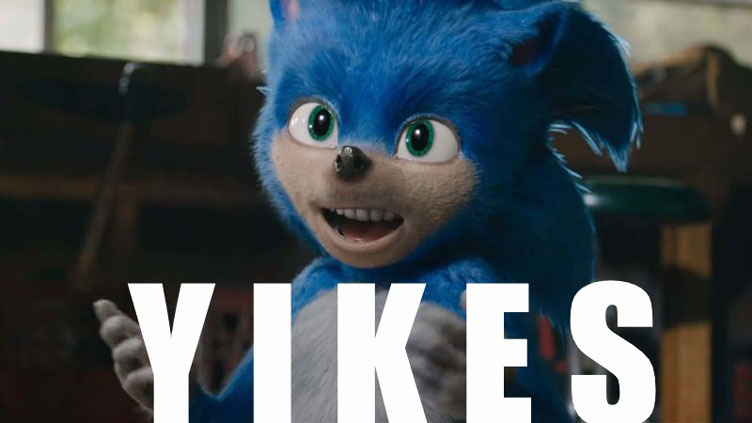OK, stop me if you’ve heard this one before: There’s no such thing as bad publicity.
If that’s the case, then the producers behind Sonic: The Movie should be feeling pretty good about themselves. The Internet has been having a field day making fun of this movie. It’s pretty clear that Sonic memes are reaching a huge audience; on twitter alone, hundreds of thousands of posts cropped up drawing eyeballs and attention to those freaky human teeth in Sonic’s freaky alien(?) mouth, but the question is: how true is that axiom in the age of memes and Twitter?
To do a bit of groundwork, I do think there’s something to say about “good memes” and “bad memes.” In other words, memes that are ultimately affirming of your project and its power versus memes that are ultimately denigrating of it. For instance, after the release of Infinity War last year, Thanos snap memes cropped up just as often on Twitter as Sonic memes, but their tone and disposition was always different. If I were a middle school teacher, I might express the difference as “laughing with Infinity War” as opposed to “laughing at Sonic.” This isn’t to doubt the power of affirmative memes, spongebob memes are still going strong twenty years after the TV show premiered, but to categorise it differently. Unless you are the truest of apologists, it’s probably hard to spin all the time and attention the Sonic trailer got yesterday (or the poster got a few months ago) as an affirming experience expressing hope and excitement about this movie.

But it’d probably be a mistake just to say “well, you want good memes, not bad memes.” Because the truth is, bad memes have also helped propel projects to success in spite of missing the mark with audience expectations. Probably the best example of this is The Room, Tommy Wiseau’s infamous passion project that’s intended as a serious tragedy about a man undone by a contemptuous woman. That intention clearly wasn’t what people engaged with, though, and now we live in a world where the movie about the Room is an Oscar contender. People didn’t connect with this movie because they connected with the emotional torture of Johnny, they connected with the movie because it was memeable. And those memes propelled a movie about it to the Oscars. This is the phenomenon of “so bad, it’s good” in action. Venom, another film that fits this mold, rode that high to $800 million dollars worldwide.
Unfortunately, we’ve been talking in film terms this entire time and when you try and port this model over to games, it doesn’t look very promising. Mass Effect: Andromeda, No Man’s Sky and most recently, Anthem, are all games whose releases looked quite a lot like Sonic’s. Tons of memes making fun of the product is going to drive a successful game, right? Well, maybe it’s a little bit mixed. No Man’s Sky seems to have found its footing after two years of updates and improvements to the game. Andromeda is dead in the water. Anthem might be in trouble, too. But in all three cases, the burst of negative publicity, even in the form of funny memes, never really translated to the “so bad, it’s good” success that we might prophesize for Sonic.
All of this puts us pretty firmly in the camp of, yeah, there is bad publicity. You don’t want it. Maybe there is a future for “so bad, it’s good” games to be appreciated by your audience, but that future is not today. If it is, it’d be hitting the lottery.
None of this is to say that embracing the memes is a bad way to go about marketing your game in the social media age. I post memes a lot. People respond to memes pretty well. I find it a lot more common that random passersby will engage with a retweeted meme rather than more traditional copy, sometimes. That’s OK, and I’d argue it’s a very good thing. It allows you to keep things diverse and adaptable, hitting different audiences with different preferences in different ways. The trick is finding a way to make good memes that are affirming and do everything possible to avoid falling down a rabbit hole of negative ones. If that happens, it’s probably best to find the thing that everyone seems to be praising.
At least Dr. Robotnik looks good, right?
